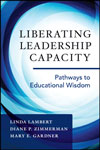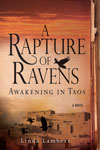Posts Tagged ‘novels’
« Older EntriesThe Story of Two Brains: Brain + Gut
Friday, October 24th, 2014
My son Tod suggested this morning that I explore the Brain + Gut phenomena as an analogy for desirable novels. Capital idea! Many now recognize that humans have two brains. One in the head and one in the gut. The gut is loaded with nerves and neurons; a very complex brain indeed. For the gut, taste+reward=energy. So describes Heribert Watzke of Oxford in the video below. So far, so good.
We experience the pleasurable taste of a good novel in the gut as well as in the brain holding our hat. I would suggest that a novel must satisfy the intellectual cravings of the big brain in companionship with the yummy tastes experienced by the gut brain. And the best news: both brains entertain your emotions, that lovable human possession that makes the world go round. Thus: Intellect + Taste + Emotions=Human choice and desires.
Think of the last novel you really loved (I’m hoping it was The Cairo Codex or The Italian Letters). Did it meet these criteria? How so?
Tags: brain, desire, gut, novels, Watzke
Posted in creativity, Fiction, Heribert Watzke, imagination, writing | No Comments » | Leave a Comment





 Conceptions of leadership have evolved, and Liberating Leadership Capacity captures these new ideas and provides a pathway to create sustainable systems of high leadership capacity. Available April 2016 from
Conceptions of leadership have evolved, and Liberating Leadership Capacity captures these new ideas and provides a pathway to create sustainable systems of high leadership capacity. Available April 2016 from  A sizzling new novel set in Taos, New Mexico. The third in the Justine Trilogy, preceded by the award-winning, The Cairo Codex and The Italian Letters. Buy it at your local independent bookstore,
A sizzling new novel set in Taos, New Mexico. The third in the Justine Trilogy, preceded by the award-winning, The Cairo Codex and The Italian Letters. Buy it at your local independent bookstore, 
